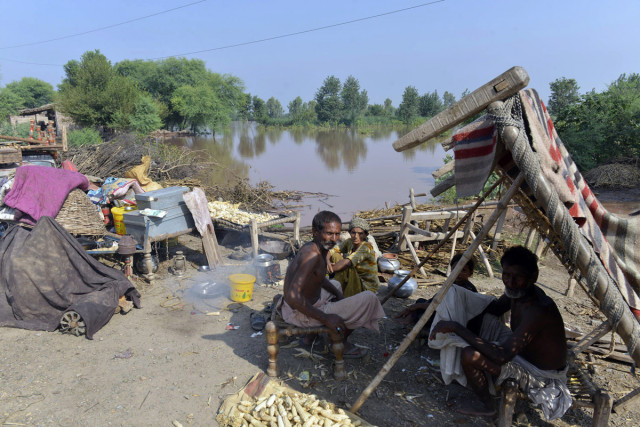Pakistan & India flood relief
A freer exchange of aid across border may help rescue teams in assisting victims that would otherwise be inaccessible

It is heartening that Prime Minister Nawaz Sharif has responded warmly to his Indian counterpart’s concern. A collaboration on the flood relief front is opportune not only because it allows for concerted efforts on the disaster-mitigation level, but also because it fosters camaraderie at a time when Pakistan- India relations have been marred by bitterness owing to the calling off of critical meetings, LoC violations and tiff on the construction of the Kishanganga Dam. As it is, since climate change and natural disasters acknowledge no state boundaries, particularly in the geography of the subcontinent where common river basins are straddled between the two states, inter-state efforts are perhaps the only effective way to mitigate disaster. With weak infrastructure and a poor, agrarian population that is almost completely dependent on the rains and rivers for livelihood, both India and Pakistan are acutely vulnerable and hence it makes sense for them to cooperate on this issue.
Emergency relief is a start. A freer exchange of aid across the border may help rescue teams in assisting victims that would otherwise be inaccessible. But the need for cooperation on disaster relief and preparation is precisely when there isn’t one, so that the two countries have adequate time to prepare. Cooperation between India and Pakistan on water-related issues is a necessity beyond just the need of the hour. India’s decision to build the Kishanganga dam has tremendous consequences for Pakistan and its already inconsistent water supply. These issues are complex, and require extensive research, planning, negotiation and cooperation. Both countries need to build on this current sentiment if they have any hope of mitigating future disasters that, scientifically, are only going to be more frequent and more intense.
Published in The Express Tribune, September 10th, 2014.
Like Opinion & Editorial on Facebook, follow @ETOpEd on Twitter to receive all updates on all our daily pieces.














COMMENTS
Comments are moderated and generally will be posted if they are on-topic and not abusive.
For more information, please see our Comments FAQ